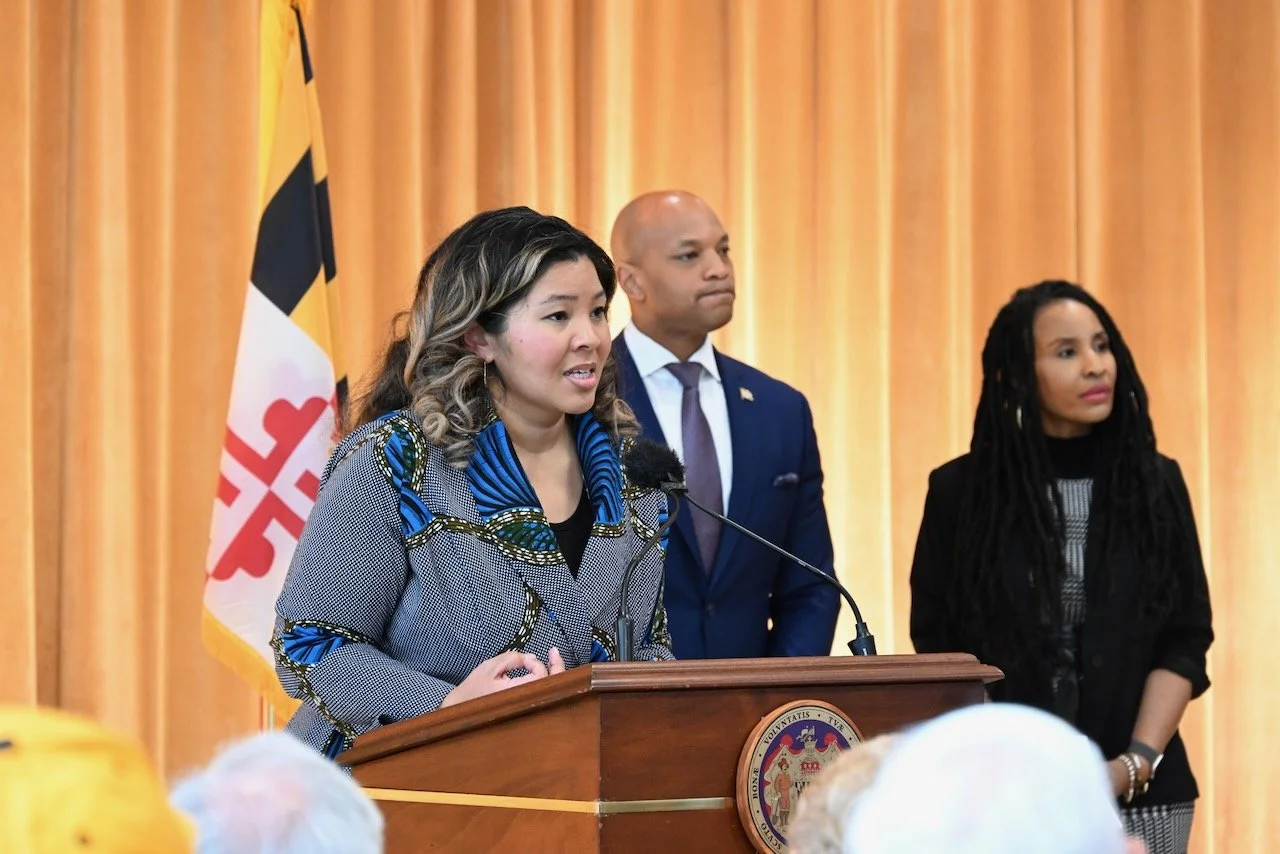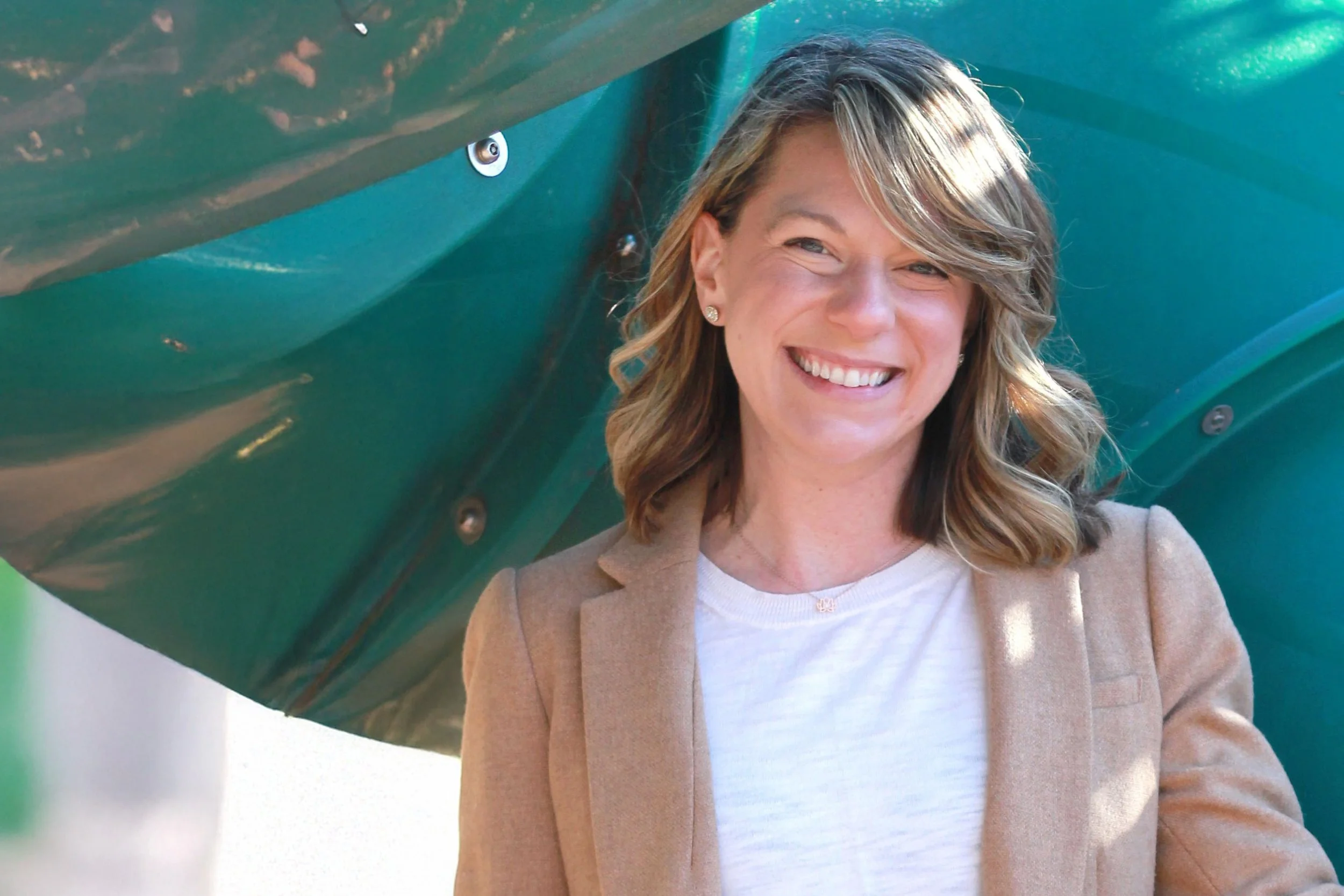Elizabeth Markle and Open Source Wellness: Making the healthy thing the easy thing
Elizabeth Markle, Ph.D., knew from an early age that she wanted to help people. She became a psychotherapist but found that work too confining. “Psychotherapists were asked to band-aid gaping wounds,” she said. “I was frustrated by what therapy couldn’t do because of the boundaries and constrictions around it.” She also saw that when she and other medical professionals recommended behavior modifications such as exercise plans or dietary changes, patients were unlikely to follow through.
So Markle had an idea. While she couldn’t completely reform the healthcare system, she could apply a community approach to motivating individuals and changing their behavior. In 2016, she and psychologist Benjamin Emmert-Aronson, Ph.D., co-founded Open Source Wellness (OSW). The national nonprofit is dedicated to increasing access to, as Markle describes, “trauma-informed, equity-centered, culturally humble, and joyful health and wellness coaching in medically underserved communities.”
Their trademark is a concept they call Community as Medicine. “We provide both direct services and training/licensing partner organizations to deliver the model,” Markle said. By inviting people who have shared health goals to come together in spaces like YMCAs, trusted healthcare clinics, or community centers, they can “make the healthy thing the easy thing,” Markle explained.
OSW focuses on four pillars of wellness: movement (physical activity), nourishment (healthy meals), connection (social support), and being (stress reduction). Rather than addressing these areas separately or consecutively, OSW integrates them in a 12-week series of once-a-week “experiential health coaching” meetings. Their hope is that participants will stay involved beyond the initials 12 weeks, providing peer support and perhaps eventually becoming certified coaches.
To find patients for their Community as Medicine programs, OSW partners with doctors—primary care physicians, specialists, or therapists—who are able to write “prescriptions” for OSW’s programs. From there, OSW’s health coaches assume responsibility for building relationships with the patients. This not only helps reduce the burden on patients to initiate lifestyle changes but also allows them to personalize their wellness plans. Practicing new habits with people from their own community also reinforces self-motivation.
OSW’s programs come in different forms to accommodate different needs—some are held virtually, some in-person, some in doctors’ offices, some in English, and some in Spanish (with more languages coming soon). “About half of the program consists of small group health coaching, where people are talking about what’s going on with them. The other half is the actual practice of well-being behaviors like movement, mindfulness, and learning together about health and wellness,” Markle said.
Serving more than 5,000 individuals since its founding, OSW has been able to consistently grow because it brings together existing local resources to deliver its Community As Medicine model. “It was better for us to uplift local talent, local partnerships, and local infrastructure than try to become a massive organization with staff on the ground in every city.
“The YMCA rose to the top as a place that has beautiful physical infrastructure and whose mission aligned with ours. But while many YMCAs have health classes and disease-specific programs, they don’t have programs that more holistically cater to the emotional and psychological struggles of conditions like diabetes or depression or social isolation.” OSW is currently partnered with the YMCAs in Denver, Seattle, San Diego, and Minneapolis, and hopes to expand to other markets.
“Community as Medicine is filling the need for the YMCAs to have what we call a ‘transdiagnostic group,’ meaning it doesn’t matter exactly what your primary diagnosis is. We can bring people together to focus on the universal drivers of human wellbeing,” Markle said.
From Patient to Wellness Coach
Success in a wellness program like OSW’s goes beyond losing weight or having more energy. The real test is whether participants make a long-term commitment to lifestyle changes, and perhaps even continue their involvement with OSW after their 12-week program ends. One heartening indicator that OSW’s model is self-sustaining is OSWX, an independently organized, peer-run version of Community as Medicine that was started by some program alumni.
In 2021, OSW launched its Community as Medicine Health Coach Training Program, which aims to create better representation in the field of health and wellness coaching. About 70 percent of their cohort is black, indigenous, and other people of color, and about 30 percent are Spanish-speaking. Held virtually over four months, OSW’s coaching program aligns with National Board of Health and Wellness Coaching standards. Though it’s open to everyone, it allows former participants to move full circle.
“They start off as participants, then become OSWX peer leaders, then become students in our coaching program, then become practicum trainees with us where they’re getting their coaching hours and practice. And finally, they become employees,” Markle said.
“That is thrilling for us!”
To learn more about Open Source Wellness, watch Markle’s TEDx talk here.




